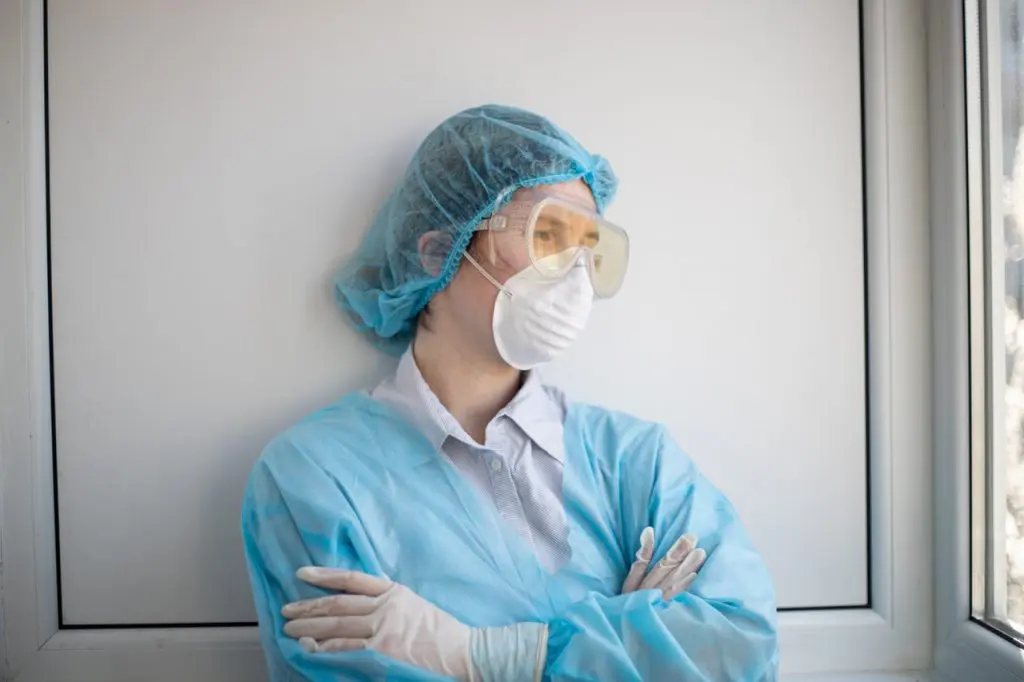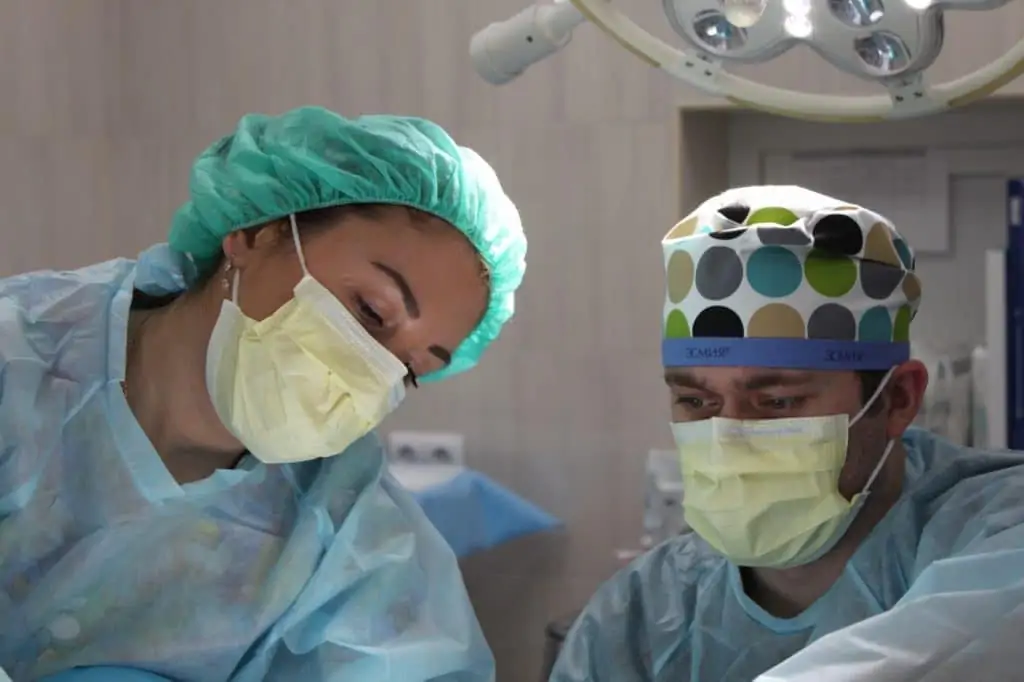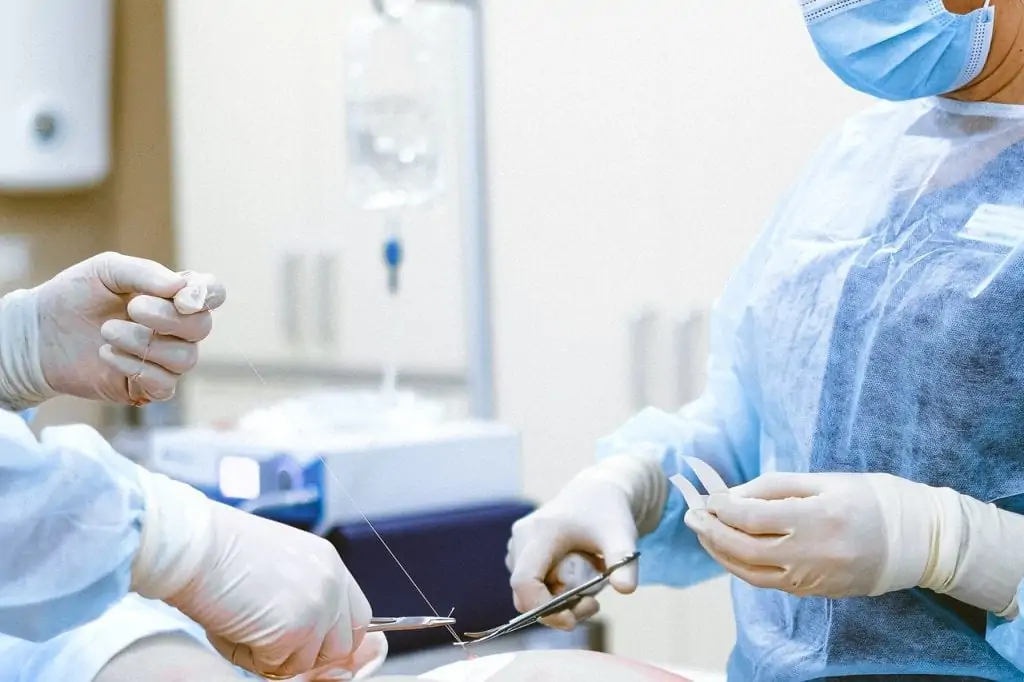Have you ever wondered what the truth is about doctor stereotypes?
A lot of doctor stereotypes can be based on some fact with lots of fiction. Are you interested in knowing the truth and nothing but the truth?
You’ve come to the right place!
Welcome to our article on the most common medical specialty stereotypes. We’re going to talk about the personality stereotypes of each specialty, along with specialty stereotypes with a twist of humor! By the end of this article, you’ll know which doctor stereotypes are accurate and their affiliated personality types.
What is a Medical Specialty Stereotype?
Medical stereotypes are faulty assumptions made about a particular specialty; though, there is always a little truth to it. Medical stereotypes are making judgments about a person solely based on their medical practice.
We want to note that our article is poking fun at medical stereotypes, and don’t want to leave you thinking that any of this is actually facts. We just wanted to share some of the most common, most inaccurate medical stereotypes for fun.
What are the Most Common Medical Specialty Stereotypes?
Now, what are the most common medical specialty stereotypes?
We’ve reviewed several articles from across the internet to justify our details for these doctor stereotypes.
Cardiothoracic Surgeon
The cardiothoracic surgeon stereotype is that these doctors are the royalty of doctors with the most respect. These doctors make great money and do rewarding surgeries, living their best lives.
Orthopedics
Ah, orthopedics. Better known as the meatheads or jocks of the groups. All they are about are bones, forget the muscles and tendons. Orthopedics need to hammer their treatment into patients, so they need enough protein for the role.
Neurology
Neurologists are the armchair intellectuals who serve only the purpose of telling you where a brain lesion is without actually intervening. They tend to take inaction over anything else.
Psychiatry
Psychiatrists are better known as the fake doctor without the empirical testing. Many see psychiatrists as having no real cures, with the only intent of ruling out delirium rather than any other condition. Psychiatrists also have a lot of respect from billing companies.
Emergency Medicine
Emergency medicine refers to the true cowboys of the medical field. Their lives are portrayed and glorified on television shows, working only 18-hour shifts a month. These are the true life-saving physicians.
Neurosurgery
Neurosurgeons have the longest residency out of all specialties and are the workaholic egomaniacs. They’re known as having the highest rates of malpractice, divorce, and suicide. Pity the poor neurosurgeon.
OB-GYN
Better known as the overworked goddess. The field is great for women since women patients tend to want to see them more than men. The hours are long; thus, these doctors are heavily overworked.
Internal medicine
Those in internal medicine are the default doctors. That is, most people will assume that all the doctors they meet practice internal medicine. The most common medical stereotype for internal medicine doctors relates to their inaction: they love thinking more than doing.
Why?
Because internal medicine doctors spend a lot of time rounding on their patients to discuss details of their treatment.
Family medicine practices medicine focused on the family as a whole; this contrasts from other doctors who may look at a specific population (e.g., adults, children, or women). The medical stereotype for family medicine is that they aren’t necessarily an outstanding student. Family medicine doctors are also usually more holistic approaches focused on alternate medicines—formerly known as the hippy country doctor.
Pediatrics
The pediatrician stereotype is simple: just imagine the combination of Patch Adams and Mr. Rogers. Pediatricians get to play with toys, children, magical creatures, and other cheery materials. However, they do need to deal with children’s parents, which can get annoying.
Anesthesiology
The anesthetist stereotypes?
Crucial for surgery, but worthless on the floor. These are the laziest of the group, constantly sleeping on the job when time permits. Compared to other surgeons, these doctors have a lot more down time and a lot more patience when yelled at incessantly by their primary surgeons.
On top of that, they are always getting yelled at by patients, doctors, families, and the list can go on.
Radiology
Radiology get to sit alone in the dark and are sometimes referred to as vampires. Radiologists spend countless hours in the darkroom with their imaging so much that seeing them outside in the daylight is a rarity.
Pathology
Pathologists are known for their lack of social skills with other humans; however, pathologists spend a lot of time in their labs far, far away from people.
Dermatology
Those in dermatology tend to be very verbose, using adjectives freely, without a care in the world. Unless, of course, the care involves money. And, if you love money without working too hard for it, then consider dermatology.
What Personality Types Match Each Different Specialties?
After sharing the most common specialty stereotypes, we also want to highlight the personalities of medical specialties, along with the personality stereotypes of each specialty accordingly. That way, we can decide which is more fact or fiction.
Internal medicine
Medical doctors who pursued internal medicine usually chose this because they love the idea of being a primary doctor, didn’t really like any other specialty or had plans to specialize after residency in a fellowship specific to a subspecialty (e.g., cardiology or gastroenterology). Their personality types are usually very detailed-oriented to be able to discuss nuances of treatment to their patients.
Family medicine
Personality types for doctors in family medicine are usually helpful and avoid conflict. Because there is a focus on a more holistic approach, family medicine doctors might have more insight into alternative medicines, such as herbs, teas, food.
Pediatrics
Personality stereotypes for pediatrics are that these doctors are cheerful since they get to engage with children in fun, creative ways. Pediatrics are usually not as stressed as other doctors. If you are good with children and dealing with their parents, then this might be for you.
Anesthesiologist
Anesthesiologists are usually under a lot of stress with their jobs. You have flexible hours compared to others, but you need to be there when you’re needed. Personality types are usually those who don’t mind being yelled at by cranky surgeons, second in command, or constantly behind the curtain when the real action happens with procedures.
Radiology
Are you a computer nerd? Then radiology is just right for you. Radiologists will spend their day in dark rooms, looking over MRI’s and studying over images for hours at a time. You’ll likely need to be a person who has a lot of patience and passion for radiology to get through this.
Pathology
Pathologists are usually very introverted and must be good team players to work with other doctors on the floor. They are very focused on their specialty rather than niceties.
Dermatology
Dermatology can be a very challenging field that a lot of people want to go into, making it hard to match in residency. Those in dermatology don’t really need to do much inpatient service, just minimal procedure along with the opportunity to start a side hustle cosmetic business.
Psychiatry
Have you ever heard of the saying; all psychiatrists are nuts? Well, that’s not fully true, but psychiatrists tend to be quirky. These doctors are not as well respected as others, get lower payer, and are in a high shortage in underserved areas.
If your purpose aligns with any of these, then this might be the medical specialty to pursue.
Neurosurgery
Neurosurgeons are workaholics, working on the clock without any breaks. The specialty has resulted in a lot of negative health outcomes among neurosurgeons, so you’ll want to be careful with the amount of stress you take on in this career. If you can dedicate your whole life to work, then this might be right for you.
Neurology
Neurologists are investigators, constantly curious about new ideas or concepts. Like all others, they are committed and compassionate with their patients. If you are interested in an intellectually stimulating and satisfying career, then this would be a great career path.
Emergency Medicine
The personality stereotype for emergency medicine include individuals with high burn out rates and thrill-seekers. Emergency medicine consists of a lot of responsibilities directly related to saving the lives of others without a pager. So, you’ll always need to be on when needed.
Cardiothoracic Surgeon
Want to be envied? Respected? Have a great lifestyle? Then cardiothoracic surgery might be for you. You will need to be highly ambitious to meet the requirements for this specialty, but the hard work definitely pays off.
Orthopedics
Orthopedics are the former athletes, who are typically a type A personality with some slight arrogance. You definitely need to be sports-oriented for this one.
OB-GYN
Personality stereotypes for OB-GYN is that they are overworked. With OB-GYN, you have the opportunity to do primary care and be a surgeon. The pay is rewarding, though.
How Accurate are Medical Specialty Stereotypes? What Does Reddit Say?
Now, the negative stereotypes of doctors were shared to poke fun. However, we went ahead and reviewed several discussions on reddit from the voices of practicing doctors and medical students.
Guess what?
Several of these stereotypes have some truth to them. For instance, orthopedic doctors definitely love bones and nothing but bones. Radiologists really do spend so much time in dark rooms, maintaining their vampire reputation.
What are Commonly Respected Medical Specialties?
Now, to answer your question about the most commonly respected medical specialties is difficult without really knowing what you are valuing with high regard. The physician hierarchy varies by technical difficulty, responsibilities/commitment, and pay. What we found was that the most commonly respected medical specialties based on technical difficulty, commitment and pay are usually neurosurgeons, cardiac surgery or other forms of specialties in surgery (e.g., plastic surgeons).
Others tend to respect medical specialties by skills, flexibility in their schedule, or other individualized preference. Generally, all medical specialties are highly respected, and each has its own place in helping people.
Wrapping Things Up: The Physician Hierarchy and Common Stereotypes
Are medical stereotypes fact or fiction? We just walked you through some of the most common stereotypes of physicians across different specialties. While some doctor stereotypes might ring truth to them, this was more of s playful stretch on what kind of personalities you might come across in each medical specialty.
The important thing to remember is that these specialty stereotypes do not supersede the importance and respect of all medical specialties in the field.
If you found this post helpful, you’re definitely going to like our other medical school tips here.
> How to Study for Family Medicine Shelf
> How to Study for Surgery Shelf













